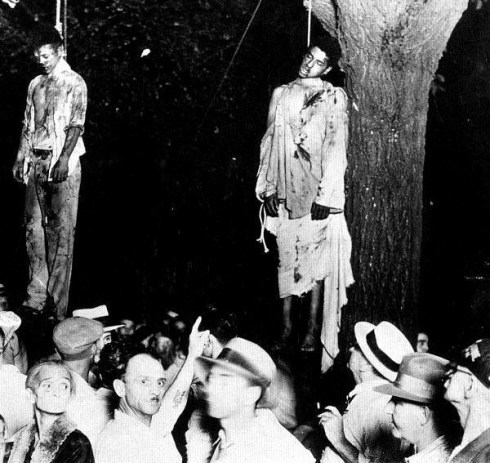Israel will never wax pale
16 MarThe siege of Jerusalem
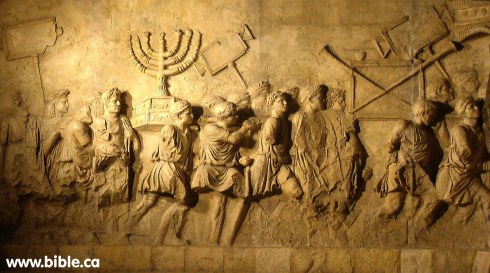 The Siege of Jerusalem in the year 70 CE was the decisive event of the First Jewish-Roman War. The Roman army, led by the future Emperor Titus, with Tiberius Julius Alexander as his second-in-command, besieged and conquered the city of Jerusalem, which had been occupied by its Jewish defenders in 66 CE.
The Siege of Jerusalem in the year 70 CE was the decisive event of the First Jewish-Roman War. The Roman army, led by the future Emperor Titus, with Tiberius Julius Alexander as his second-in-command, besieged and conquered the city of Jerusalem, which had been occupied by its Jewish defenders in 66 CE.
The siege ended with the sacking of the city and the destruction of its famous Second Temple.
Siege
Despite early successes in repelling the Roman sieges, the Zealots fought among themselves, and they lacked proper leadership, resulting in poor discipline, training, and preparation for the battles that were to follow.
Titus surrounded the city, with three legions (V Macedonica, XII Fulminata, XV Apollinaris) on the western side and a fourth (X Fretensis) on the Mount of Olives to the east. He put pressure on the food and water supplies of the inhabitants by allowing pilgrims to enter the city to celebrate Passover, and then refusing to allow them back out. After Israelite allies killed a number of Roman soldiers, Titus sent Josephus, the israelite historian, to negotiate with the defenders; this ended with Jews wounding the negotiator with an arrow, and another sally was launched shortly after. Titus was almost captured during this sudden attack, but escaped.
In mid-May Titus set to destroying the newly built Third Wall with a ram, breaching it as well as the Second Wall, and turning his attention to the Fortress of Antonia just north of theTemple Mount. The Romans were then drawn into street fighting with the Zealots, who were then ordered to retreat to the temple to avoid heavy losses. Josephus failed in another attempt at negotiations, and Israelite attacks prevented the construction of siege towers at the Fortress of Antonia. Food, water, and other provisions were dwindling inside the city, but small foraging parties managed to sneak supplies into the city, harrying Roman forces in the process. To put an end to the foragers, orders were issued to build a new wall, and siege tower construction was restarted as well.
After several failed attempts to breach or scale the walls of the Antonia Fortress, the Romans finally launched a secret attack, overwhelming the sleeping Zealots and taking the fortress. Overlooking the Temple compound, the fortress provided a perfect point from which to attack the Temple itself. Battering rams made little progress, but the fighting itself eventually set the walls on fire; a Roman soldier threw a burning stick onto one of the 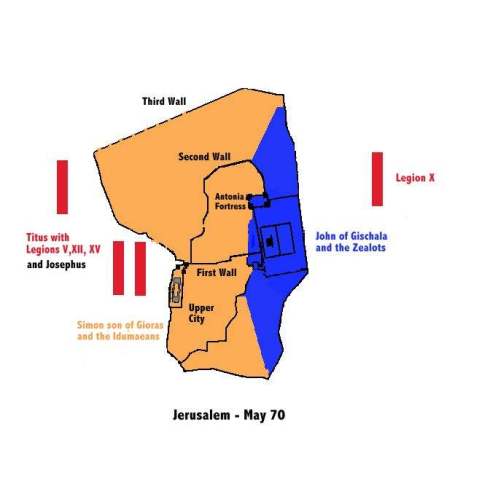 Temple’s walls. Destroying the Temple was not among Titus’ goals, possibly due in large part to the massive expansions done by Herod the Great mere decades earlier. Titus had wanted to seize it and transform it into a temple dedicated to the Roman Emperor and the Roman pantheon. The fire spread quickly and was soon out of control. The Temple was destroyed on Tisha B’Av, in the beginning of August, and the flames spread into the residential sections of the city.
Temple’s walls. Destroying the Temple was not among Titus’ goals, possibly due in large part to the massive expansions done by Herod the Great mere decades earlier. Titus had wanted to seize it and transform it into a temple dedicated to the Roman Emperor and the Roman pantheon. The fire spread quickly and was soon out of control. The Temple was destroyed on Tisha B’Av, in the beginning of August, and the flames spread into the residential sections of the city.
The Roman legions quickly crushed the remaining Israelites resistance. Part of the remaining Jews escaped through hidden underground tunnels, while others made a final stand in the Upper City. This defence halted the Roman advance as they had to construct siege towers to assail the remaining Jews. The city was completely under Roman control by September 7 and the Romans continued to hunt down the Jews that had fled the city.The Roman legions quickly crushed the remaining Israelites resistance. Part of the remaining Jews escaped through hidden underground tunnels, while others made a final stand in the Upper City. This defence halted the Roman advance as they had to construct siege towers to assail the remaining Jews. The city was completely under Roman control by September 7 and the Romans continued to hunt down the Jews that had fled the city Toward Africa in order to hide among the other Dark skin people.
Igbo/Heebo, and Negro
There are several theories concerning the etymology of the word “Igbo” (wrongly spelled “Ibo” by British colonialists). Eighteenth-century texts 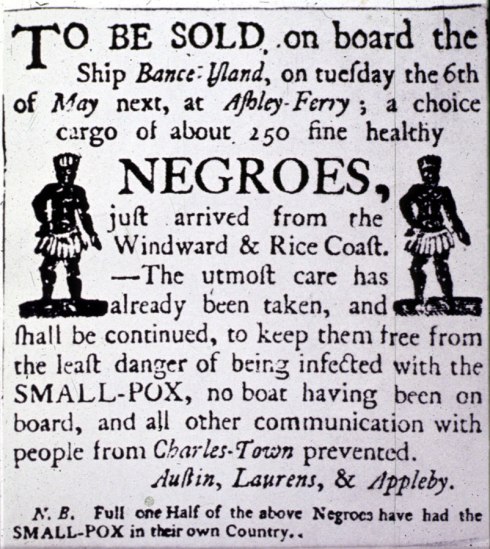 had the word as “Heebo” or “Eboe,” which was thought to be a corruption of “Hebrew.” “Igbo” is commonly presumed to mean “the people.” The root -bo is judged to be of Sudanic origin; some scholars think that the word is derived from the verb gboo and therefore has connotations of “to protect,” “to shelter,” or “to prevent”—hence the notion of a protected people or a community of peace. According to other theorists, it may also be traced to the Igala, among whom onigbo is the word for “slave,” oni meaning “people.” This is very interesting , as all slave bill of sale will never call the slaves African, but Negro or heebo
had the word as “Heebo” or “Eboe,” which was thought to be a corruption of “Hebrew.” “Igbo” is commonly presumed to mean “the people.” The root -bo is judged to be of Sudanic origin; some scholars think that the word is derived from the verb gboo and therefore has connotations of “to protect,” “to shelter,” or “to prevent”—hence the notion of a protected people or a community of peace. According to other theorists, it may also be traced to the Igala, among whom onigbo is the word for “slave,” oni meaning “people.” This is very interesting , as all slave bill of sale will never call the slaves African, but Negro or heebo
I dont agree with some of this guys understanding but, never the less he has a lot if understanding and good knowledge.
Israelite’s lived in projects just like “Black people” do today?
8 Marwell friends, Its been a while. Me and my wife had a new baby girl, Im working on my up coming radio show, and Ive been talking with some of our brothers in brazil. All in all Ive been busy. never the less I have to bring this out. As always I am not with ISUPK but needs to get out
The Mesha Stele ( the Moabite stone)
11 Feb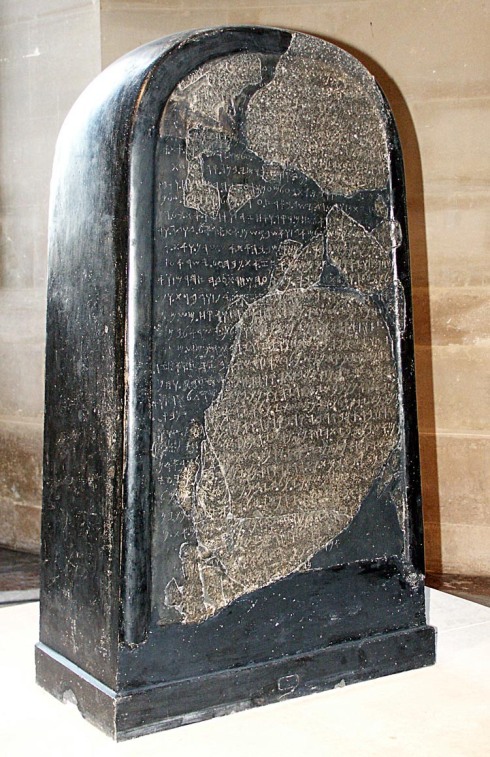 The Mesha Stele (also known as the “Moabite Stone”) is a stele (inscribed stone) set up around 840 BCE by King Mesha of Moab (a kingdom located in modern Jordan). Mesha tells how Kemosh, the God of Moab, had been angry with his people and had allowed them to be subjugated to Israel, but at length Kemosh returned and assisted Mesha to throw off the yoke of Israel and restore the lands of Moab. Mesha then describes his many building projects.
The Mesha Stele (also known as the “Moabite Stone”) is a stele (inscribed stone) set up around 840 BCE by King Mesha of Moab (a kingdom located in modern Jordan). Mesha tells how Kemosh, the God of Moab, had been angry with his people and had allowed them to be subjugated to Israel, but at length Kemosh returned and assisted Mesha to throw off the yoke of Israel and restore the lands of Moab. Mesha then describes his many building projects.
The stone was discovered intact by a missionary at the site of ancient Dibon (now Dhiban, Jordan), in August 1868. The next year it was smashed by local villagers during a dispute over its ownership, but a “squeeze” (a papier-mâché impression) had been obtained, and fragments containing most of the inscription (613 letters out of about a thousand) were later recovered and pieced together. The squeeze and the reassembled stele are now in the Louvre Museum.
The stele, whose story parallels, with some differences, an episode in the bible’s Books of Kings (2 Kings 3:4-8), provides invaluable information on the Moabite language and the political relationship between Moab and Israel at one moment in the 9th century BCE. It is the most extensive inscription ever recovered that refers to the kingdom of Israel (the “House of Omri”), it bears the earliest certain extra-biblical reference to the Israelite god Yahweh, and — if French scholar André Lemaire’s reconstruction of a portion of line 31 is correct — the earliest mention of the “House of David” (i.e., the kingdom of Judah).
2Ki 3:4 And Mesha king of Moab was a sheepmaster, and rendered unto the king of Israel an hundred thousand lambs, and an hundred thousand rams, with the wool.
2Ki 3:5 But it came to pass, when Ahab was dead, that the king of Moab rebelled against the king of Israel.
2Ki 3:6 And king Jehoram went out of Samaria the same time, and numbered all Israel.
2Ki 3:7 And he went and sent to Jehoshaphat the king of Judah, saying, The king of Moab hath rebelled against me: wilt thou go with me against Moab to battle? And he said, I will go up: I am as thou art, my people as thy people, and my horses as thy horses.
2Ki 3:8 And he said, Which way shall we go up? And he answered, The way through the wilderness of Edom.
Mesha Stale Translation
1. I am Mesha, son of KMSYT (Kemosh[-yat]), the king of Moab, the Di-
2. -bonite. My father was king of Moab thirty years, and I reign-
3. -ed after my father. And I built this high-place for Kemosh in QRH (“the citadel”), a high place of [sal-]
4. -vation because he saved me from all the kings (or “all the attackers”), and because let me be victorious over all my adversaries. Omr-
5. -i was king of Israel and he oppressed Moab for many days because Kemosh was angry with his
6. land. And his son replaced him; and he also said, “I will oppress Moab”. In my days he spoke thus.
7. But I was victorious over him and his house. And Israel suffered everlasting destruction, And Omri had conquered the lan-
8. -d of Madaba, and he dwelt there during his reign and half the reign of his son, forty years. But Kemosh
9. returned it in my days. So I [re]built Baal Meon, and I the water reservoir in it. And I bu[ilt]
10. Qiryaten. The man of Gad had dwelt in Ataroth from of old; and the king of Israel
11. built Ataroth for him. But I fought against the city and took it. And I slew all the people [and]
12. the city became the property of Kemosh and Moab. And I carried from there the altar for its DVDH (“its Davidic altar”?) and I
13. dragged it before Kemosh in Qerioit, and I settled in it men of Sharon m[en]
14. of Maharit. And Kemosh said to me, “Go! Seize Nebo against Israel.” so I
15. proceeded by night and fought with it from the crack of dawn to midday, and I to-
16. -ok it and I slew all of them: seven thousand men and boys, and women and gi-
17. and maidens because I had dedicated it to Ashtar Kemosh I took [the ves-]
18. -sels of YHWH, and I dragged them before Kemosh. And the king of Israel had built
19. Yahaz, and he dwelt in it while he was fighting with me, but Kemosh drove him out before me. so
20. I took from Moab two hundred men, all his captains. And I brought them to Yahaz, And I seized it
21. in order to add (it) to Dibon. I (myself) have built the ‘citadel’, ‘the wall(s) of the forest’ and the wall
22. of the ‘acropolis’. And I built its gates; And I built its towers. And
23. I built a royal palace; and I made the ramparts for the reservo[ir for] water in the mid-
24. -st of the city. But there was no cistern in the midst of the city, in the ‘citadel,’ so I said to all the people, “Make [for]
25. yourselves each man a cistern in his house”. And I hewed the shaft for the ‘citadel’ with prisoner-
26. -s of Israel. I built Aroer, and I made the highway in the Arnon.
27. I built Beth-Bamot, because it was in ruins. I built Bezer, because it was
28. a ruin [with] the armed men of Dibon because all of Dibon was under orders and I ru-
29. -led [ove]r [the] hundreds in the towns which I have annexed to the land. And I bui-
30. -lt Medeba and Beth-Diblaten and Beth-Baal-Meon, and I carried there [my herdsmen]
31. [to herd] the small cattle of the land, and Horonain, in it dwelt house of Dw[D]…
32. [and] Kemosh [s]aid to me, “Go down, fight against Horonain”. And I went down [and I fou-
33. -ght with the city and I took it and] Kemosh [re]turned it in my days. Then I went up from there te[n…]
34. […a high] place of justice and I […]
Deep Underground Military Base. Esau will try to hide
10 Feb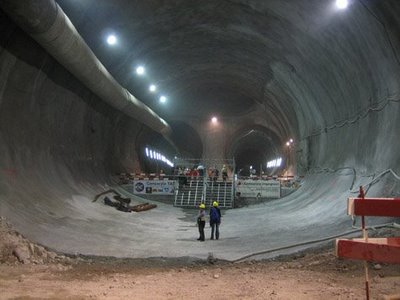 Deep underground Military bases or D.U.M.B. as its ironically called, is a Military installation that is set ether in side a mountain or deep underground. Unknown to most people in the U.S. is a dark secret that has been right under your nose. The main function for these D.U.M.B. is to act as a bunker and safe haven for the powerful, super rich, and most influential people of the world. if you have seen my previous post “Esau and the Horites” you know that the Edomite nations are not new to living under the earth. Job talked about them living in the rock and mountains
Deep underground Military bases or D.U.M.B. as its ironically called, is a Military installation that is set ether in side a mountain or deep underground. Unknown to most people in the U.S. is a dark secret that has been right under your nose. The main function for these D.U.M.B. is to act as a bunker and safe haven for the powerful, super rich, and most influential people of the world. if you have seen my previous post “Esau and the Horites” you know that the Edomite nations are not new to living under the earth. Job talked about them living in the rock and mountains
Job 30:6 To dwell in the cliffs of the valleys, in caves of the earth, and in the rocks.
Job 30:7 Among the bushes they brayed; under the nettles they were gathered together.
Job 30:8 They were children of fools, yea, children of base men: they were viler than the earth.
Whats unknown to them is that fact that this is prophecy being fulfilled. This fact was shown to me by a brother named Ya’qah Ban Yashral. Their is something Esau is scared to death of and its not the fall of society.
Isa 2:10 Enter into the rock, and hide thee in the dust, for fear of the LORD, and for the glory of his majesty.
Isa 2:11 The lofty looks of man shall be humbled, and the haughtiness of men shall be bowed down, and the LORD alone shall be exalted in that day.
Isa 2:12 For the day of the LORD of hosts shall be upon every one that is proud and lofty, and upon every one that is lifted up; and he shall be brought low:
Isa 2:19 And they shall go into the holes of the rocks, and into the caues of the earth for feare of the Lord, and for the glory of his Maiestie; when hee ariseth to shake terribly the earth.
Isa 2:20 In that day a man shall cast his idoles of siluer, and his idoles of golde which they made each one for himselfe to worship, to the moules and to the battes:
Isa 2:21 To go into the clefts of the rocks, and into the tops of the ragged rockes, for feare of the Lord, and for the glorie of his Maiestie; when hee ariseth to shake terribly the earth.
Starving North Koreans ‘are forced to eat their children’
31 JanI am not saying Koreans are Israelite but this is a prophecy in the Holy Scriptures
Rom 15:4 For whatsoever things were written aforetime were written for our learning, that we through patience and comfort of the scriptures might have hope.
 January 28, 2013 – NORTH KOREA – Hungry parents in North Korea have been caught eating their children to avoid starvation, according to reports. One father is said to have been executed by firing squad for killing his two kids for food. And it has sparked fears there could be further cases of cannibalism in the country. The Sunday Times told how undercover reporters recorded several horror stories from inside the poverty-stricken nation. They included one man who dug up his grandchild’s corpse to eat and another who boiled his child and ate the flesh. Thousands of North Koreans are feared to be starving to death while their chubby leader Kim Jong-Un regularly dines on banquets. It is claimed that more than 10,000 people could have died from in the provinces south of the capital Pyongyang alone. One informant in South Hwanghae, said: “In my village in May a man who killed his own two children and tried to eat them was executed by a firing squad.” The informant told how the man even offered meat from his daughter and son to his wife when she returned from a business trip. He was arrested and sentenced to death after she informed the authorities and the children’s bodies were found. The reports were originally compiled by Asia Press using “citizen journalists” working inside the country. One official told them: “In a village in Chongdan county, a man who went mad with hunger boiled his own child, ate his flesh and was arrested.” There is not enough food to go round the 24 million people who live in North Korea. Many face starvation because of grim conditions for food production including crippling droughts. But it is also under strict sanctions because of its nuclear ambitions. However just last week the defiant country outraged the world as it announced plans for a third nuclear missile test. –Sun
January 28, 2013 – NORTH KOREA – Hungry parents in North Korea have been caught eating their children to avoid starvation, according to reports. One father is said to have been executed by firing squad for killing his two kids for food. And it has sparked fears there could be further cases of cannibalism in the country. The Sunday Times told how undercover reporters recorded several horror stories from inside the poverty-stricken nation. They included one man who dug up his grandchild’s corpse to eat and another who boiled his child and ate the flesh. Thousands of North Koreans are feared to be starving to death while their chubby leader Kim Jong-Un regularly dines on banquets. It is claimed that more than 10,000 people could have died from in the provinces south of the capital Pyongyang alone. One informant in South Hwanghae, said: “In my village in May a man who killed his own two children and tried to eat them was executed by a firing squad.” The informant told how the man even offered meat from his daughter and son to his wife when she returned from a business trip. He was arrested and sentenced to death after she informed the authorities and the children’s bodies were found. The reports were originally compiled by Asia Press using “citizen journalists” working inside the country. One official told them: “In a village in Chongdan county, a man who went mad with hunger boiled his own child, ate his flesh and was arrested.” There is not enough food to go round the 24 million people who live in North Korea. Many face starvation because of grim conditions for food production including crippling droughts. But it is also under strict sanctions because of its nuclear ambitions. However just last week the defiant country outraged the world as it announced plans for a third nuclear missile test. –Sun
There are many Israelite Groups who feel that we (Israelites) should not store food for massive Dearth and world food shortages that are coming. Consider the story of Joseph and how he saved Egypt from starvation by storing food. When you go shopping and put food inside your refrigerator, that is a form of storing.There are clear indicators and warnings in the Scriptures that The Most High Elohim YHWH shows his people to use wisdom and prepare.
Act 11:27 And in these days came prophets from Jerusalem unto Antioch.
Act 11:28 And there stood up one of them named Agabus, and signified by the Spirit that there should be great dearth throughout all the world: which came to pass in the days of Claudius Caesar.
Act 11:29 Then the disciples, every man according to his ability, determined to send relief unto the brethren which dwelt in Judaea:
Act 11:30 Which also they did, and sent it to the elders by the hands of Barnabas and Saul.
We see a clear testament of how Agabus got a vision from the the spirit of YHWH that there would be a starvation in the land during his time. We also see that from this, the Disciples sent food and provisions to those who needed it. This took a level of preparation to take heed to his, this is also not that much different for the story of Joseph.
Jer 19:8 And I will make this city desolate, and an hissing; every one that passeth thereby shall be astonished and hiss because of all the plagues thereof.
Jer 19:9 And I will cause them to eat the flesh of their sons and the flesh of their daughters, and they shall eat every one the flesh of his friend in the siege and straitness, wherewith their enemies, and they that seek their lives, shall straiten them.
The above verse is speaking of the siege of 70 AD which is also spoken of by Christ in the book of Luke. But we can see that a similar account of  the heathens going through this also. preparation is a factor of wisdom during a time of distress, but this does not in any fact take away from YHWH.
the heathens going through this also. preparation is a factor of wisdom during a time of distress, but this does not in any fact take away from YHWH.
2Ki 6:25 And there was a great famine in Samaria: and, behold, they besieged it, until an ass’s head was sold for fourscore pieces of silver, and the fourth part of a cab of dove’s dung for five pieces of silver.
2Ki 6:26 And as the king of Israel was passing by upon the wall, there cried a woman unto him, saying, Help, my lord, O king.
2Ki 6:27 And he said, If the LORD do not help thee, whence shall I help thee? out of the barnfloor, or out of the winepress?
2Ki 6:28 And the king said unto her, What aileth thee? And she answered, This woman said unto me, Give thy son, that we may eat him to day, and we will eat my son to morrow.
2Ki 6:29 So we boiled my son, and did eat him: and I said unto her on the next day, Give thy son, that we may eat him: and she hath hid her son.
Pro 22:3 A prudent man foreseeth the evil, and hideth himself: but the simple pass on, and are punished.
Lam 4:9 They that be slain with the sword are better than they that be slain with hunger: for these pine away, stricken through for want of the fruits of the field.
Pro 6:6 Go to the ant, thou sluggard; consider her ways, and be wise:
Pro 6:7 Which having no guide, overseer, or ruler,
Pro 6:8 Provideth her meat in the summer, and gathereth her food in the harvest.
Bar 2:2 To bring vpon vs great plagues, such as neuer happened vnder the whole heauen, as it came to passe in Ierusalem, according to the things that were written in the Law of Moses,
Bar 2:3 That a man should eat the flesh of his owne sonne, and the flesh of his owne daughter.
We see that this is all through the whole Bible and in different time periods. We should prepare and keep wisdom for the latter days and of things to come. But what of the people who say that we should not store food in our house, and turn it into a sin to do so ie; some of your “Elders.”
Jer 14:15 Therefore thus saith the LORD concerning the prophets that prophesy in my name, and I sent them not, yet they say, Sword and famine shall not be in this land; By sword and famine shall those prophets be consumed.
2 esdras 15:57 Thy children shall die of hunger, and thou shalt fall by the sword. Thy cities shall be broken down, and all thine shall perish with the sword in the field.58 They that are in the mountains shall die of hunger, and eat their own flesh and drink their own blood, for very hunger for bread and thirst for water.
Psa 37:25 I haue bene yong, and now am old; yet haue I not seene the righteous forsaken, nor his seede begging bread.
Shalom
